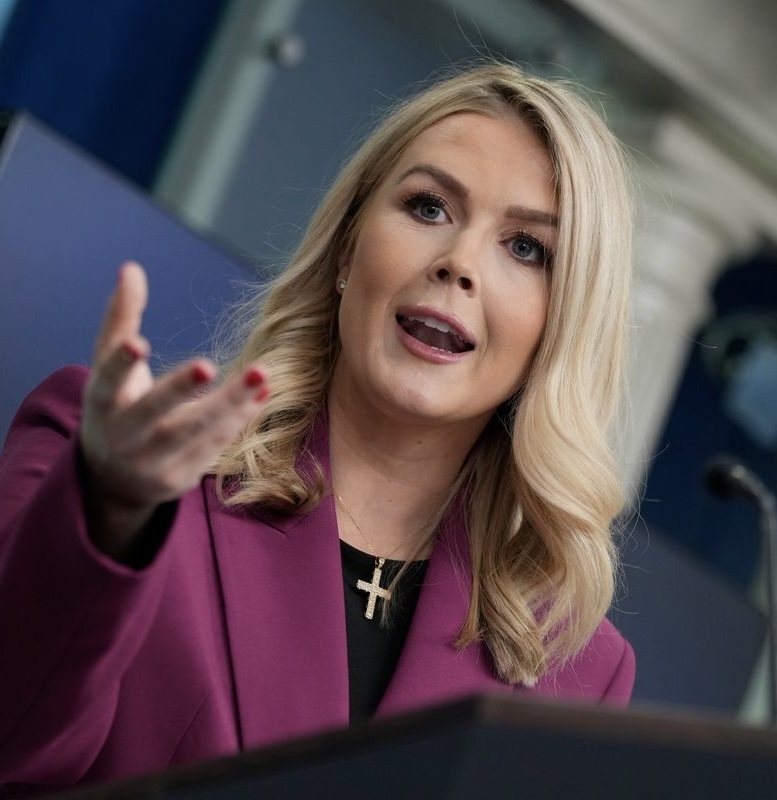Leavitt Hits Back at CNN Over Questions Regarding Musk’s Security Clearance
White House Press Secretary Karoline Leavitt found herself under the spotlight Monday after CNN’s Kaitlan Collins pressed her about Elon Musk’s role in the government. In a direct exchange during a press briefing at the Oval Office, Collins questioned whether Musk, a known supporter of former President Trump, holds a security clearance and what his status as a “special government employee” really entails. Collins began by asking, “Can you confirm that Elon Musk is a special government employee? And what security clearance does he have?” Leavitt responded, “I can confirm that he is a special government employee. I can also confirm that he has complied with all relevant federal laws. As for his security clearance, I’m not sure, but I can check back with you.” When Collins pressed for clarification on whether Musk had undergone a background check, Leavitt again expressed uncertainty, stating, “I don’t know about the security clearance, but I can check.”
This brief exchange left many questioning the details of Musk’s involvement with the government. Later reports from CNN revealed that Musk’s designation as a special government employee means he is not a full-time federal worker nor a volunteer. An anonymous source even suggested that Musk has been granted a “top-secret security clearance,” adding more fuel to the mystery surrounding his government role. Musk has been vocal about his contributions, particularly his work with the Department of Government Efficiency (DOGE), where he has gained attention for his efforts to reduce federal waste. His public alignment with Trump and outspoken political views have only heightened controversy surrounding his involvement in government operations and national security matters.
Leavitt’s responses during the press briefing appeared to steer the conversation away from the issue of Musk’s security clearance. When asked whether anyone on Musk’s team had received a security clearance, Leavitt responded with, “I don’t know, but I can check on that for you.” This hesitance to provide clear answers has sparked debate among political analysts and social media users, with some suggesting that her lack of clarity only reinforces the opaque nature of Musk’s government relationship. Musk’s position as a special government employee has raised further questions, as it places him in a unique position where he is not a regular federal employee but still holds significant influence. This status has led to debates over whether figures with Musk’s profile should be subjected to the same scrutiny and security protocols as career federal employees.
Adding another layer of context, CNN guest and attorney Arthur Aidala suggested that Musk’s history of contributions to space exploration might justify a more relaxed approach to security measures. “He’s gotten us into space and brought us to the moon,” Aidala remarked during a segment, arguing that Musk’s accomplishments could warrant a different set of standards for security clearances. Musk himself has defended his actions, claiming that he assisted in rescuing astronauts stranded in space in January at President Trump’s request, a claim that has sparked significant discussion.
These narratives highlight the complex relationship between Musk, government operations, and national security. Critics of the Trump administration argue that Musk’s involvement in governmental roles reflects cronyism and political favoritism, while his supporters see it as an opportunity to inject efficiency and accountability into government functions. Leavitt’s responses in the press briefing suggest that the White House is attempting to maintain control over the narrative, even as questions about transparency continue to loom.
This interaction also underscores the scrutiny the current administration faces, with the press and public closely analyzing every statement. Leavitt’s attempt to avoid answering questions about Musk’s security clearance only deepened the speculation, adding to the ongoing conversation about the role of high-profile figures like Musk in the government.
The issue of security clearances and the designation of special government employees remains a contentious topic, with significant implications for national security and public trust. Any uncertainty surrounding these matters is likely to continue to attract both support and criticism. Whether Musk’s involvement with the government will be clarified in the future or remain ambiguous is a question that remains unanswered. In the meantime, the press conference exchange with Leavitt continues to stir headlines, emphasizing the tension between executive discretion and media accountability. As the public demands clearer information about the roles of influential figures within the government, both supporters and critics of Musk are left waiting for further clarification.
